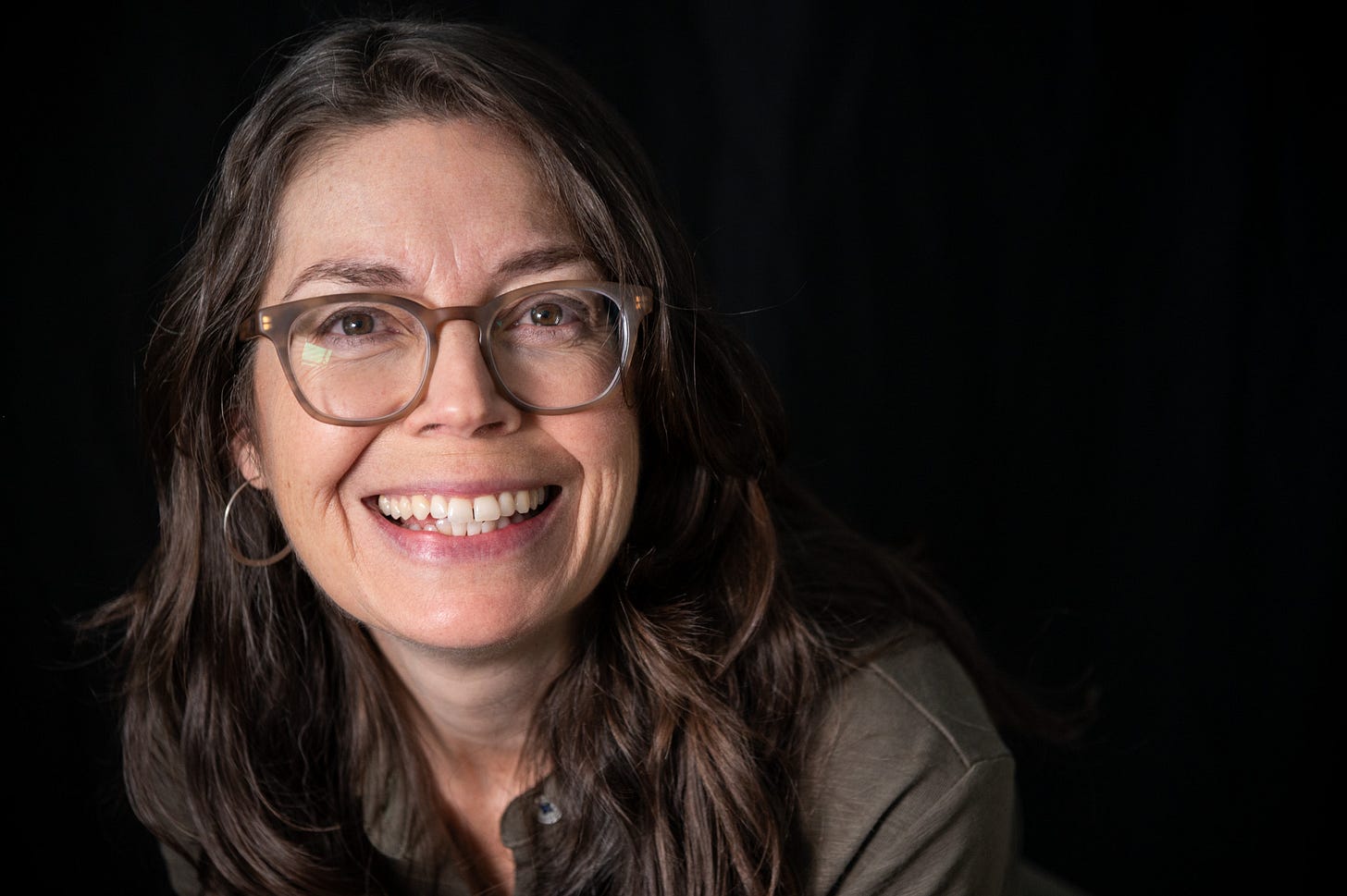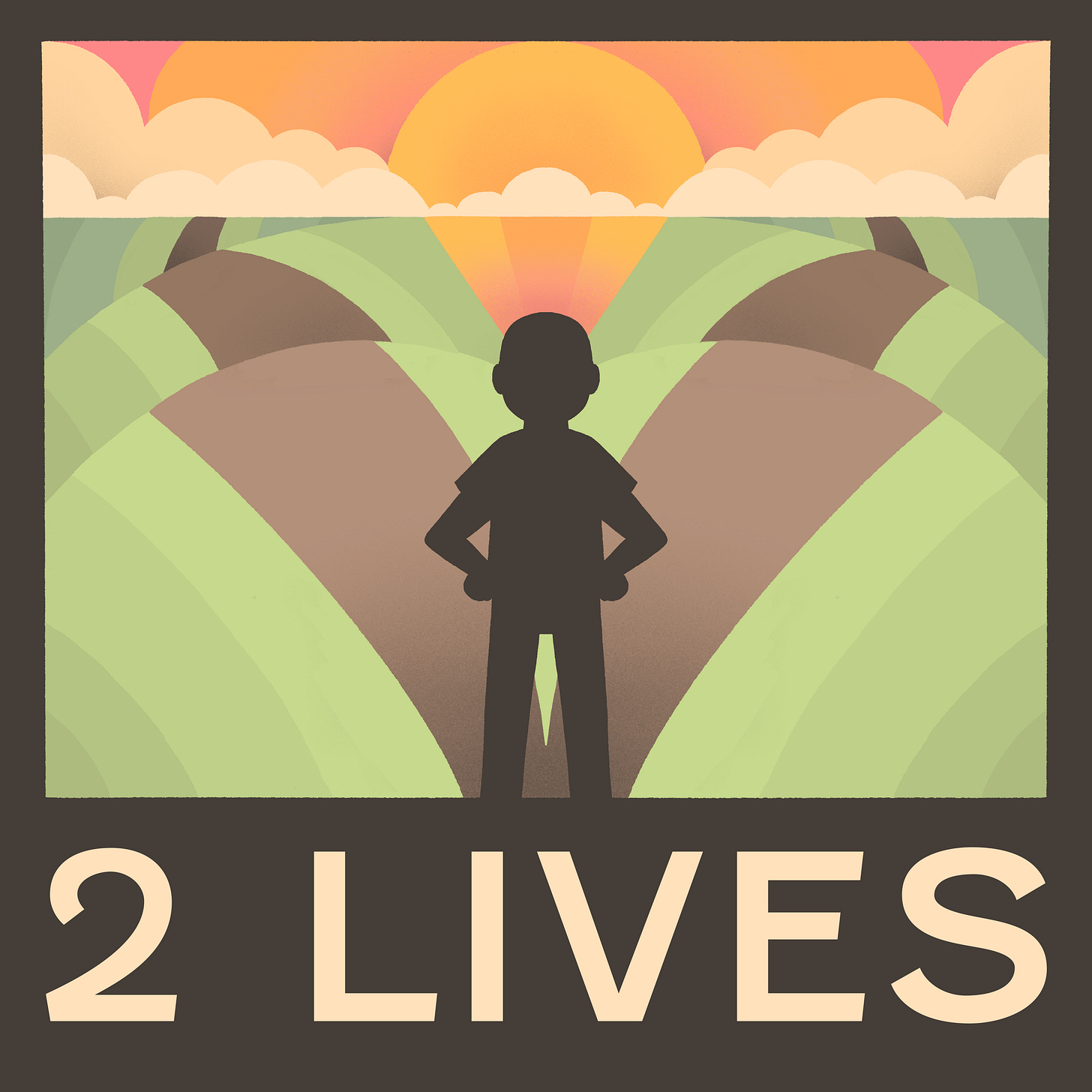
Laurel Morales (she/her) created the award-winning podcast 2 LIVES after two decades of reporting for National Public Radio. 2 LIVES is one of several podcasts she has produced or helped launch. She’s had many 2 LIVES stories of her own, so her interviews are grounded in a lot of love and empathy. She’s won multiple awards for her reporting, writing, and podcast production including a Signal Award for best indie podcast. She is currently revising her debut novel.
Learn more about the 2 LIVES podcast by visiting the 2 LIVES website. You can also follow the show on Instagram, Facebook and X @2livespodcast. To send inquiries / feedback, email 2livespodcast@gmail.com.
In no more than five words (excluding articles / prepositions), describe 2 LIVES.
From darkness to light, stories of transformation
Prior to starting the show you were working as a journalist. What were some of the topics that you focused on?
I’ve reported on a lot of disasters — both manmade and natural — wildfires, drought, climate change, uranium contamination. Because of my proximity to the Navajo Nation and other tribes I often covered issues affecting Native people. In all I looked for the people most impacted, or the untold stories, like Michelle Sherman’s.
Michelle attempted suicide as an 11-year-old. Navajo LGBTQ youth are three times as likely to attempt suicide as their white counterparts, according to a Diné Policy Institute study. She found an unlikely champion in her grandmother and is now dedicated to helping kids like her.
What is the story that you are most proud of?
In 2013 when the Yarnell Hill Fire killed 19 firefighters outside Prescott, a media circus descended on the town. I didn’t feel comfortable approaching people who were in such profound shock and grief. Someone told me the men who died were never left alone. It’s called honor watch and began that Sunday when the Prescott fire crew stayed with the men through the night until the bodies were taken to the medical examiner's office.
Days later they lined the streets holding flags during the procession of 19 white hearses. Inside each of the hearses another honor guard member sat vigil. Eric Caputo, the commander of the Flagstaff honor guard, who was also a firefighter, told me we do this so that they are never alone.
That story and my coverage of the wildfire earned me a national Edward R. Murrow Award.
What is a story that you know had a big impact?
The average household in the United States uses 100 gallons of water everyday to cook, clean, and drink. On the Navajo Nation they use seven. They have to make what little water they have last. Forty percent of the tribe has to haul their water or wait for a water truck to deliver it. This story focused on one tiny community on the Navajo Nation that relies on Darlene Arviso, otherwise known as the “water lady.”
As a result of this story the tribe got a new water truck and an organization called DIG DEEP that digs wells and pipes clean water to people’s homes in developing parts of the world received hundreds of thousands of dollars in donations.
In 2020 when the pandemic and the White House’s response consumed the news cycle, I turned off the radio. I had very little desire to report on what was happening. The only thing keeping me going was the knowledge that reporting on the pandemic’s impact on the Navajo Nation might bring them the help they so desperately needed.
I kept meeting people whose stories deserved more time including Navajo translator Marquerita Donald who barely survived COVID. But when she did, seized the moment to become a nurse, her lifelong goal.
That’s when I came across this quote: “We all have two lives. The second begins the moment we realize we have only one.” I got that fluttery feeling you get when you think you have a great idea.
I’d had my own 2 LIVES moments and knew how powerful they could be. That’s how I came up with 2 LIVES - stories of people who have faced darkness and how those moments transformed them.
Marquerita’s story became one of my first episodes.

Reflecting on over 4 years publishing, do you think you’ve accomplished what you set out to do with the show?
Yes, when I receive feedback like, I was going through a really hard time and then I found your podcast and I started feeling more hopeful, that’s more than I ever thought I could do.
2 LIVES has won awards and it has been featured as a “show we love” on Apple Podcasts. But it’s really what I hear from listeners that keeps me going. Here are a few reviews:
“Every episode I’m in tears. I learn something about myself and how I want to show up in the world.”
“Listening to this podcast lifts me up in a way that is inaccessible most of the time. Other people sharing their stories of pain and their subsequent ladder through and above it is some kind of metaphysical tether that works as a ladder for us all.”
“It’s so authentic and heartfelt I can feel it opening me up to a world I’ve always been closed to.”
Over the last three years 2 LIVES has been funded by grants, patrons, and sponsors, but it’s a lot of work to keep that up. I would love to find a home for the show and let someone else take care of the marketing and funding, so I can focus solely on the stories.
How has 2 LIVES evolved now that it is in its 10th season, and do you think there is a way to take it further?
Since 2 LIVES is about making a change, how we climb out of the dark, I’m often asking people to revisit the worst day of their lives. After producing Lisa Cooper Ellison’s episode, she asked me if I’d like to debrief with her about the experience. Through our conversation I learned that our interview had been triggering for her.
With her knowledge as a writer, a psychologist, and a teacher, she taught me how to prepare someone before signing up to be interviewed, how to ask questions that may be triggering, and how to involve the storyteller in the storytelling process.
Now I warn people that sharing our stories can be therapeutic and, while I’ve had a lot of therapy, I am not a therapist. And since then I’ve had people tell me that coming on the show has been healing for them.
We’ve done a couple seasons that were focused on a theme, like we did a season on burnout because that seemed to be a common theme we kept coming across. And I had experienced it personally, so it really resonated.
Valerie Shively, the assistant producer, does an amazing job thinking outside the box. We’re constantly brainstorming ways to do this better. One of her ideas: asking listeners to call or send a recording about an episode that was meaningful to them in a way to help build community among the 2 LIVES listeners or 2 LIVES Crew. She’s put it into action and it’s been amazing.
When I started the show I had a pocketful of storytellers from my years of reporting whose stories went beyond the 4-minute feature. Today people reach out to us with their stories and that is such a gift.
The stories your guests share likely have a deep impact on some listeners given the nature of some of the stories. Are there any stories you can share of responses you have gotten from listeners?
Many people have said that 2 LIVES is proof again and again of the strength of the human spirit like with Josh “the Jedi” Loya.
In addition listeners have connected with Darcy Alexandra’s story of domestic violence or Duane Koyawena’s story of alcoholism or Lisa Sorrell’s story of being an Ex-Vangelical. I believe their stories help people feel less alone.
Not too long ago I ran into the family of Dre Adauto at the grocery store. They were just so grateful, not just for sharing his story, but for the way I shared it. They said they learned things about him and his experience that they did not know and it helped them better understand what he went through when he lost his leg. That meant a lot to me.
In closing, what is a lesson that has stayed with you from one of your show guests?
I’ve learned from so many storytellers, and sat and cried with so many people in interviews. The one that hits home the most today is Wenche Fredriksen, who is a recovering perfectionist. She wound up in the hospital several times with chronic pain and illness and she can trace it all back to her burn out.
Her therapist told her to celebrate mistakes so she did things like dropping her kids off at school in her pajamas and allowing them to wear clothes with stains on them and sending work emails with grammar errors. Another exercise she did was list all of the things she did in addition to her paid full-time job, all of the invisible work, as its been called, raising two kids, keeping a clean house. When she saw it all on paper she realized this was the work of three people. It was no wonder she had made herself sick when she realized all she had accomplished.
Then this wonderful therapist suggested she do something a bit morbid and write her own obituary so she could see how she’d like to be remembered. Turns out she wanted to be remembered as a mom who smiled and enjoyed playing with her kids.
I could definitely relate to her experience.
Is there any new or upcoming work that you would like to share with us?
We are wrapping up season 10 with two incredibly powerful episodes — one about what happens when we don’t deal with small t traumas in our life, and the other about how one woman learned to recalibrate hope after a devastating loss.
Also, I’m teaching a workshop through AIR Media and Sound Path called From Idea To Launch: How To Create A Sustainable Podcast.
There may be 2.5 million podcasts in the world, but the majority haven't dropped more than ten episodes. And only a handful have grown their audience consistently. Even fewer have won awards for their efforts.
In this intermediate-level workshop taught by an award-winning podcast creator, learn the essential steps to take before you drop the first episode that will help you sustain a show you actually want to keep making.
Through listening sessions, discussions, and writing prompts, you will finish the course equipped to launch your own sustainable podcast.
Class dates: September 17, 19, 24, & 26
Class time: 2-3:30 PM PT / 5-6:30 PM ET
Registration Link: www.soundpath.co/course/sustainable-podcast
If this show’s format / topic interests you, you might also want to check out the Sounds Like Impact interview with Darrren Calhoun of Second Sunday podcast.



